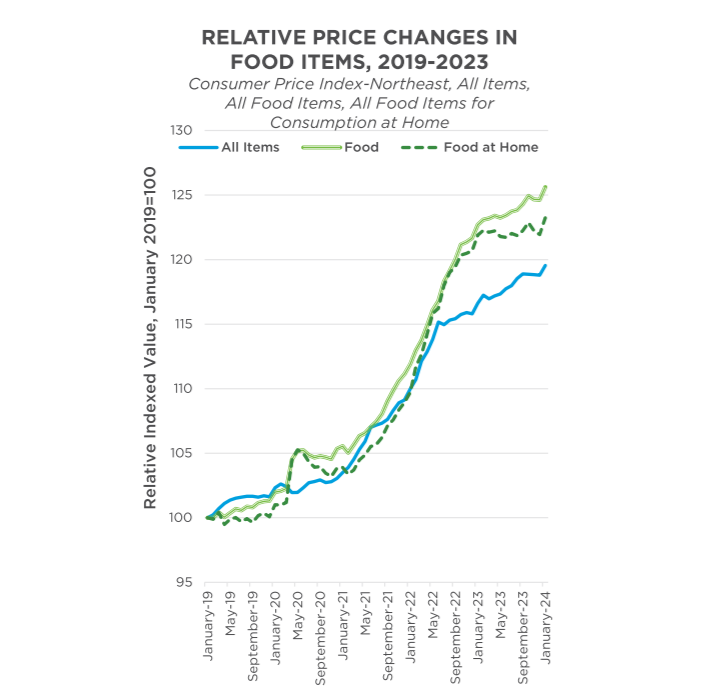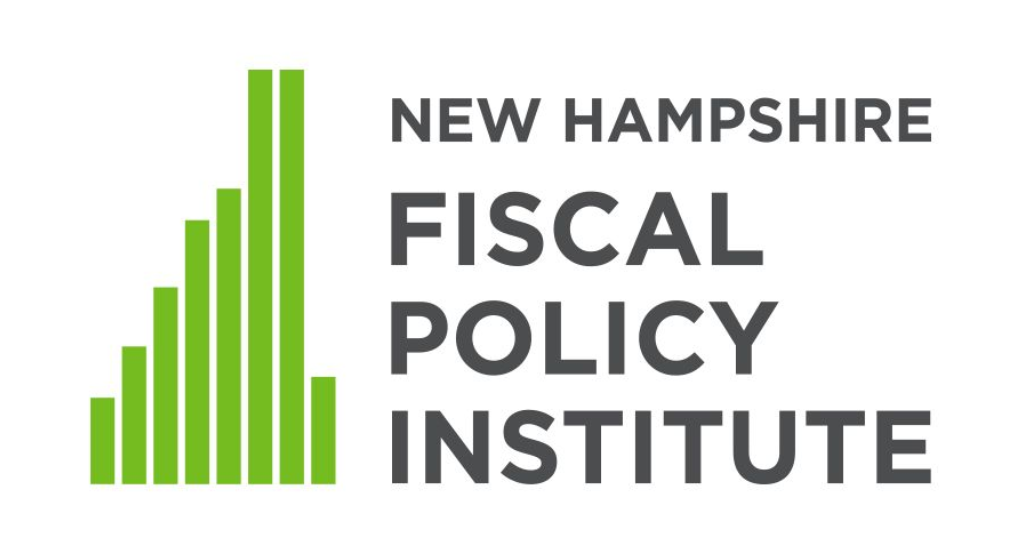I’ve never been overly fond of the New Hampshire Fiscal Policy Institute’s (NHFPI) research, but sometimes, you find a helpful nugget. Take this February 2024 report on “Poverty and Food Insecurity in New Hampshire During and Following the COVID-19 Crisis.” It is a lot of words and charts divining who is having trouble living comfortably and putting food on the table. If you read through to the end, you’ll find the answer, not that NHFPI ever arrives at this conclusion itself, but before we go there, some context from the opening paragraph.
Poverty and food insecurity are interrelated challenges for many individuals and families in New Hampshire. Research suggests a strong relationship between poverty and food insecurity, both of which rose following the Great Recession of 2007-2009 nationally and in New Hampshire. The COVID-19 pandemic also significantly increased the risk that more people would face poverty and food insecurity. However, the federal policy response to the COVID-19 pandemic has reduced poverty and food insecurity, nationwide and in the Granite State. Early data suggests the expiration of key policies in response to the pandemic has led to a rebound in both of these hardships.
You may now see why I am less than fond of the NHFPI. The problem, as they see it (early data suggests), is the expiration of pandemic policies, which translates to expired federal fiscal handouts, props-ups, and supports (drumroll) made available in response to the government closing businesses and unemploying people. Public policy created a problem that the political response exacerbated. These programs infused obscene sums of cash into the economy, which, along with other dangerous federal fiscal policies in the following years, devalued the dollar, creating a rapid spike in inflation that continued over the years the report covers. The question never asked or answered is, if we’d done none of that, what would have followed? Everyone would be better off which means that the rest of that report is a review of how bad government policy impacts the demographics discussed in it. You will not be surprised to learn that heavy-handed government interference hits women, children, minorities, and the poor hardest.
One bright spot was the outdated practice of marriage and monogamy. Married couples had the most income and food security in this survey by a wide margin, but let’s not get distracted. I mentioned the lead they buried which I’ve done as well. The problem of inflation. That thing the government created through policy. But the only place inflation raises its ugly little quality-of-life destroying the head in this “research” is … at the end.
Inflation has been a challenge to financial security for many households, and food prices have risen substantially more than prices overall. While the Consumer Price Index for urban consumers in the northeastern United States estimated prices for all consumer goods and services in January 2024 were about 19.5 percent higher than in January 2019, food prices had risen about 25.6 percent during this five-year period. Prices for “food at home,” which represents groceries and excludes restaurant meals, increased 23.2 percent. While inflation has slowed substantially since early 2022, these increases likely diminished the ability of households with low incomes to remain food secure consistently.

Estimates vary, but what might change if inflation were only a few percentage points annually, as is typical, as opposed to the rising increase in the cost of everything month after month over a few short years? Again, what if the government hadn’t closed businesses (some for good) and unemployed so many? What if it had not deliberately engaged in policies that made energy more expensive (energy affects the price of everything)? If it had never poured tens, if not hundreds of billions, into an economy It put into a coma, and hundreds of billions more into other unnecessary endeavors, aggravating inflation and the consumer price index further.
We should talk about rising poverty and food insecurity, but you could at least have the balls to suggest that the solution might be doing more to keep the government from meddling—keeping it out of the way, preventing it from doing what it does to the detriment of its people. But then again, that seems to be what the NHFPI exists to suggest: more meddling.
Need another example? NHFPI is worried Counties, towns, and cities will lose tens of millions in federal dollars if they don’t spend it or allocate it by the end of the year.
